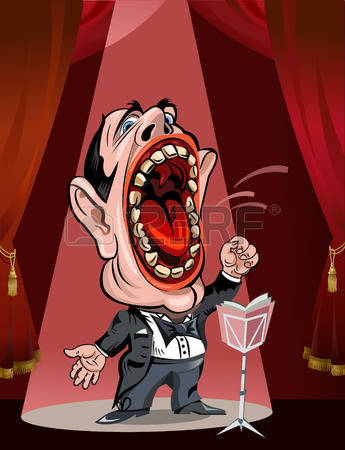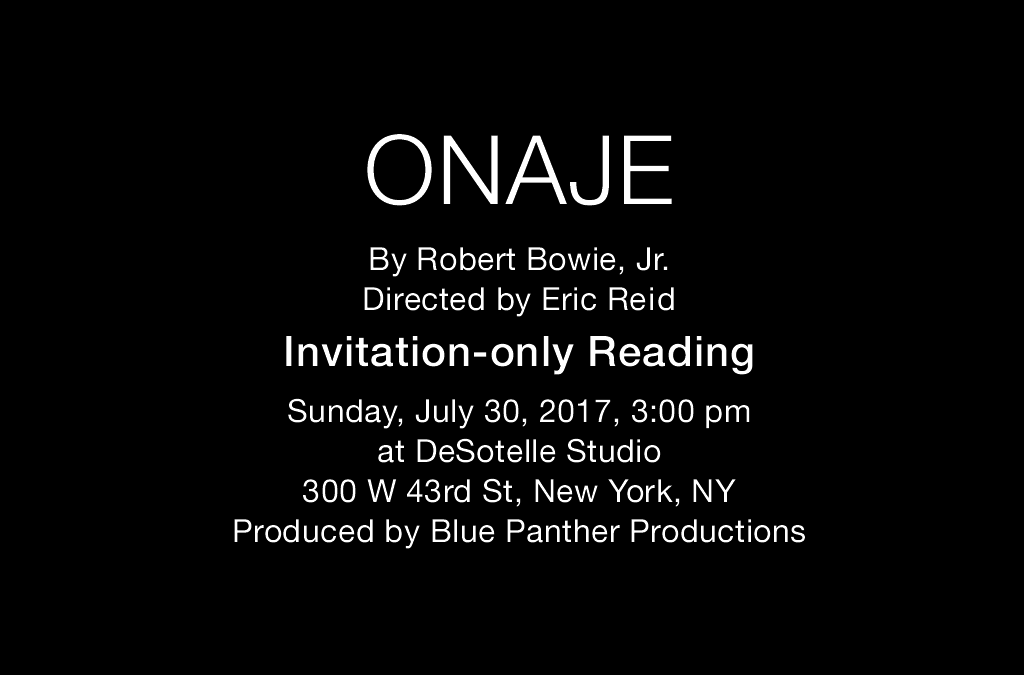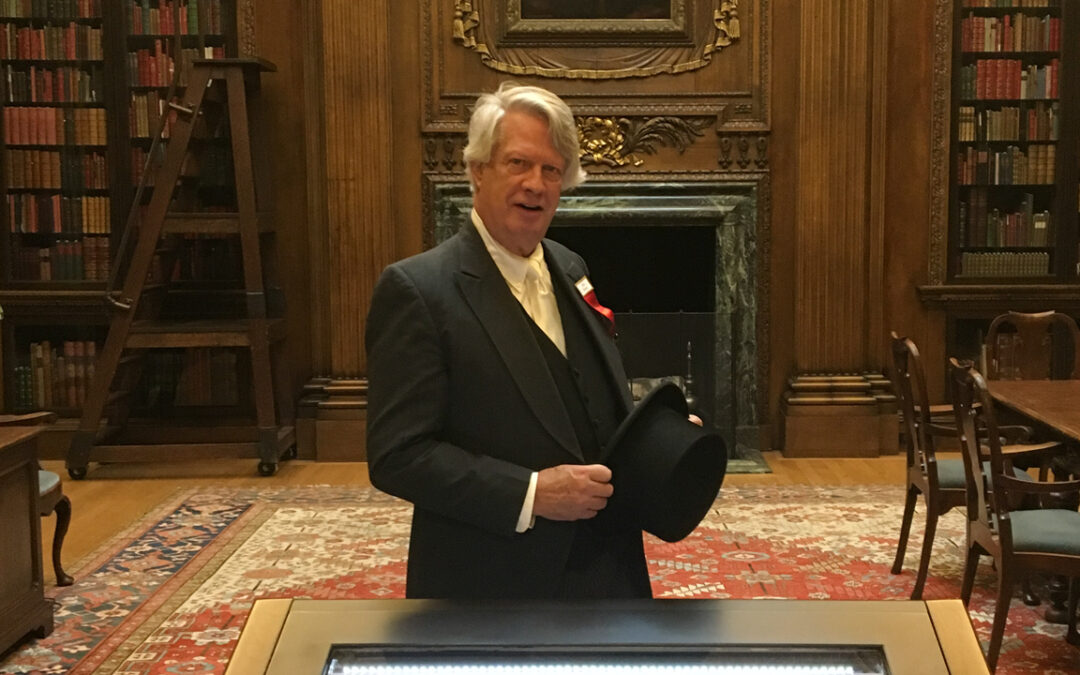by Robert Bowie, Jr. | Aug 17, 2017 | Featured, Politics
 Let’s see what would happen if “we the people” (the audience), wrote our own musical and cast the playwright & librettist as the Congress and the President, and cast their investors as the titans of Wall Street? (Wow– could this be a “revolutionary” musical?)
Let’s see what would happen if “we the people” (the audience), wrote our own musical and cast the playwright & librettist as the Congress and the President, and cast their investors as the titans of Wall Street? (Wow– could this be a “revolutionary” musical?)
The Time & Place: How about our politically gridlocked America? (It is starting to sound like a revolutionary musical!)
The Cast of Characters: Since we are writing it let’s make us, the audience, the heroes, and the playwright, librettist and investors our official villains since they are all dedicated to entertaining the audience by feeding us what they want to hear in order to be able to secure their jobs and protect the wealthy from taxes — employing a smokescreen of misinformation and false news in order to entertain their audience by keeping them angry. (They probably won’t be singing Hamilton hip-hop but let’s see what they come up with “for a song and dance.”)
The Plot: The playwright and librettist entertain us by creating manipulated conflict between the bottom 99% of the audience. The poor versus the poor (which pretends it’s the middle class) so no one will see the puppeteer, the super wealthy? ( I feel a song coming on): Let’s have Wall Street Open the show by singing: “Market Share.” A big bang up number! The first lines could be:
“The bigger the market, the bigger our share /
The more we steal, the less they care! /
Let’s fleece my sister, let’s fleece my brother /
As long as they’re angry at each other. /
Isn’t it sweet, isn’t it funny /
How they love us when we take all their money?”
Hey, it’s “the song and dance”! Let’s call it “The Political shuffle.” (Oh man, the songs are coming fast and furious):
Congress can swing the next song:
“Make Yourself the Perfect Job” (about how gerrymandering can get our elected representatives lifetime employment with the best benefits and retirement their audience can afford, and then the entire audience can rise in opposition and sing:
“The No Wealth No Healthcare Blues” (which can be sung by ZIP Code first by anybody who lives around an emergency room, including patients, doctors, healthcare professionals, and then by everybody in the surrounding ZIP Codes spreading out across the country who is paying (unless you own your own hospital).
Now let’s give the politicians some hand clapping songs:
“I hate ‘tax and spend’ /
Unless I’m where all the taxes end.”
And then a solo for a tone deaf President:
“Free the rich, enslave the poor /
The land of opportunity is no more.”
And then some hand clapping songs for us:
“The false news, no news… /
The Propaganda blues.”
(We could even have the Supreme Court do hip-hop, but they would have to have a rhyme scheme of ABBA because they are too polarized to agree to rhyme together) but maybe they harmonize with the song “Ventriloquism”:
“Yo- Citizens United, long may it last! /
‘Free-speech’ is that what you call it? /
You vote now with what’s inside your wallet /
And we speaketh from where once we passed gas?”
(But wait – just occurred to me – how can we pay for this?) Well if we are the audience, we already have!
So what should we call our new musical?
“Just Keep Us Fighting Among Ourselves?” – No.
“You Think We Are Too Stupid for Democracy?” – No.
“What Happened to My Country? – No.
How about, “Let’s NOT Follow the Money”? – No.
We could close with a kick line and just drop the curtain or …Maybe we could all stand up and remember that we are all Americans who can sing together?
This is another entry in my series of plot studies. Here’s the previous one. And the next.

by Robert Bowie, Jr. | Aug 15, 2017 | News
For Artistic Directors and Producers ,we held an invitation only reading of “Onaje,” produced by Blue Panther Productions directed by Eric Reid of San Francisco.Full house .The actors were fabulous and the response and the request for scrips exceeded all of our expectations. For more information please email Laura Lundy.
Sunday July 30 2017 at 3 P.M.
At DeSotelle Studio
300 W43rd St,
New York. NY.
THE PLAY
Reno, 1980. A black hitchhiker is hit by a white cowboy and waitress speeding down the freeway on a get-away. The collision becomes much more dangerous when the unlikely trio realizes that two of them are inextricably linked together through the long-buried secrets of their past. In a shocking conclusion, they are forced to return to everything they escaped and stand up against their deepest fears in a vicious stand-off. “Onaje” is set in two worlds, Maryland 1980, and the civil rights riots in the Eastern shore in 1967.

by Robert Bowie, Jr. | Aug 15, 2017 | Featured, ONAJE, Personal
I write plays but I can’t act. My acting career ended shortly after an all-boys fourth grade Christmas pageant. I was a shepherd. I had one line that I had to speak to introduce Mary onto the stage. The music teacher had placed a wig on the class bully and handed him a plastic Jesus in swaddling clothes. In real life, the class bully had biceps in fourth grade and Elvis hair. I misspoke my one line. I said, “Come mither hairy!” I returned from recess bloody and a playwright.
Last weekend at an invitation-only reading for artistic directors and producers, my play “Onaje” was read at 300 West 43rd street in New York City. It was read by actors who make a living being actors. I was stunned by the uniqueness of their genius.
I am a recovering lawyer. While I practiced law, I had nine plays produced in little theaters in Baltimore. Although I was proud of them, I made no effort to have them performed professionally. When my play was given a staged reading in New York for the first time I worked with professional actors and was blown away.
The performance was scheduled for Sunday at 3 o’clock in a 30-seat performance space. The actors were sent the script about a week before the Saturday morning rehearsal in an apartment in New York. The rehearsal was, in essence, a read-through where Eric Reid, an accomplished actor and director from San Francisco, gave directorial instructions and the actors discussed their characters. The actors were all obviously capable but I was not ready for what I would see the following day.
There was another read-through which was to a large extent the blocking of the reading. All the actors sat in chairs in the black box theater against the wall until they were on stage, which meant they stood and went to the music stands in front of them and delivered their lines. There was a one hour break between that rehearsal and the performance. At the blocking rehearsal, the actors were still playing with their characters well I had a terrible thought that they had not had time to become fully familiar with the script and their characters.
I went off to a late lunch with Eric and returned to see the actors in their own village doing breathing exercises, sitting quietly or doing yoga. I had no understanding of how good they would be on stage.
The small theater filled the actors took their places and the reading began. I saw a transformation that changed my understanding of the art of theater. Somehow, they knew the people they will play in an intimate and unique way. Somehow, they knew each other and the interaction created a greater whole. The play was very well received and the script has been requested after I have had a chance to do some work on the text.
Afterward, the lights went on and the actors were people again and they merged with the audience. I stood in the back of the theater immersed in surprise by the evolution of the process and the sheer genius of those actors. Actors are unique beasts.
A central aspect of my play concerns the capacity of people to empathize with strangers. I realized as I stood there I had witnessed it by the transformation of actors so easily turning the written word into human beings.

by Robert Bowie, Jr. | Jul 18, 2017 | ONAJE, ONAJE Update
For Artistic Directors and Producers ,we are holding an invitation only reading of “Onaje,” produced by Blue Panther Productions.For information and invitations please email Laura Lundy.
Sunday July 30 2017 at 3 P.M.
At DeSotelle Studio
300 W43rd St,
New York. NY.
THE PLAY
Reno, 1980. A black hitchhiker is hit by a white cowboy and waitress speeding down the freeway on a get-away. The collision becomes much more dangerous when the unlikely trio realizes that two of them are inextricably linked together through the long-buried secrets of their past. In a shocking conclusion, they are forced to return to everything they escaped and stand up against their deepest fears in a vicious stand-off. “Onaje” is set in two worlds, Maryland 1980, and the civil rights riots in the Eastern shore in 1967.

by Robert Bowie, Jr. | Jun 20, 2017 | Featured, HAA, Personal
The “Costume” in my case was white tie and tails with a perfect black top hat. The “Set” was the Harvard graduation of last week. The “Plot”: Because of the custom of complete secrecy, I had been told only a few days before that I had been selected to escort James Earl Jones for the afternoon proceedings and to an honorees lunch at Widener Library after the morning ceremonies where he, along with several others, would be given an honorary degree.
Only last month I had seen his performance as the poet in Tennessee William’s Night of the Iguana at the American Repertory Theater and had read about his career, which started with his first appearance on Broadway in 1957 and spans 60 years on stage and screen.
After the honorary degree had been bestowed on him in the morning and those proceedings had ended, Mr. Jones would descend the stage, which is at the foot of Memorial Church, and march with his fellow honorees below the colorful flags of the graduate schools and the undergraduate houses, between the assembled throng of the thousands of applauding viewers to ascend the steps of Widener library and be directed to the periodical room where I would meet him, take his ceremonial cap and gown, unburden him of his framed honorary degree, and provide him with the refreshment of his choice. Then I would facilitate conversation among the other honorees before we took the elevator up to the lunch and thereafter back to the stage for the afternoon speech by Mark Zuckerberg and the closing proceedings.
I arrived early to Widener and made certain I knew exactly what my duties were and traced my steps from the periodicals room where I would meet Mr. Jones, through the elevator exit and entrance to the luncheon and ultimately the path we would take to get back to the stage and become seated for the afternoon proceedings.
But this was a very special moment for me, so I decided that I could entertain Mr. Jones by offering him a slight diversion from our proscribed path, to see the Gutenberg Bible in a private room which contains a portrait of Harrie Widener, for whom the library was named after he died on the Titanic a century ago. I confirmed that I could get into the room and because I was early I asked a solo passerby to randomly photograph me since the proceedings had not started and we were still allowed photographs before the event began. It would be my stage where I could watch James Earl Jones react to the surroundings I have offered him.
But my play went off script and the plot collapsed and, in fact, disappeared. The weather had been awful all morning with a steady drizzle and unexpected gusts of wind that sent the water across the crowds and the stage. Those being honored on the stage, although they were protected by a grand tent still suffering the blasts of wind and rain and the general chill of the morning.
As the proceedings broke up and the ceremonial march to the steps of Widener began, I assumed my position outside of the periodicals room to meet James Earl Jones, but as the others entered through the grand doors and were steered to their escorts there was no sign of him. After all the other honorees had entered and had turned over their robes and diplomas to their escorts, I went to one of the police officers guarding the ceremonies and started a flurry of walkie-talkie conversations in search of Mr. James Earl Jones. As the others took the elevator up to lunch, someone reported back that Mr. Jones had been worn out by the weather and the cold during the morning proceedings and had asked to go directly from the stage to his hotel room.
I never met him and I have only that photograph of the Gutenberg Bible in the foreground and the portrait of Harrie Widener in the background with a slightly rotund overdressed older man between them, and the realization that dreams can be memorialized in still photographs but plot cannot be deprived of action.
 Let’s see what would happen if “we the people” (the audience), wrote our own musical and cast the playwright & librettist as the Congress and the President, and cast their investors as the titans of Wall Street? (Wow– could this be a “revolutionary” musical?)
Let’s see what would happen if “we the people” (the audience), wrote our own musical and cast the playwright & librettist as the Congress and the President, and cast their investors as the titans of Wall Street? (Wow– could this be a “revolutionary” musical?)


